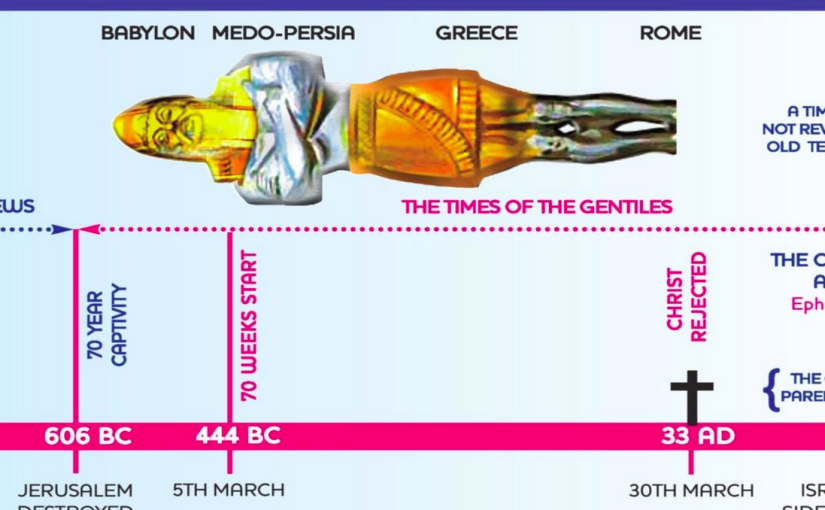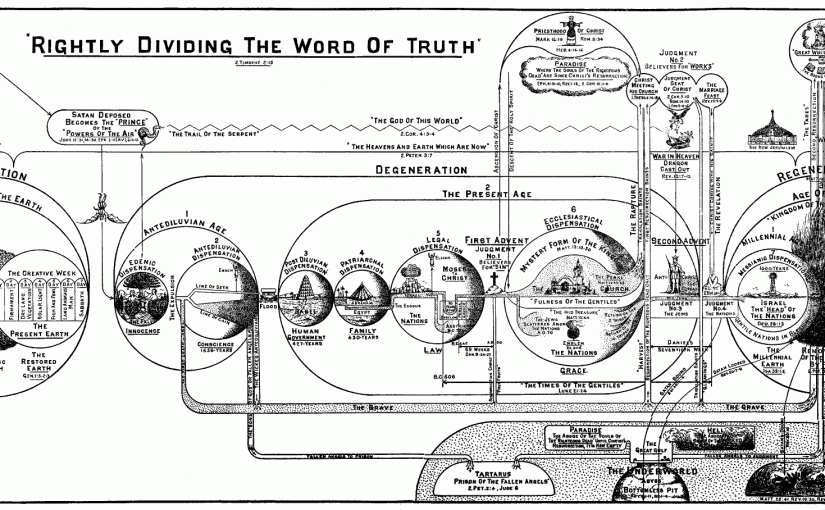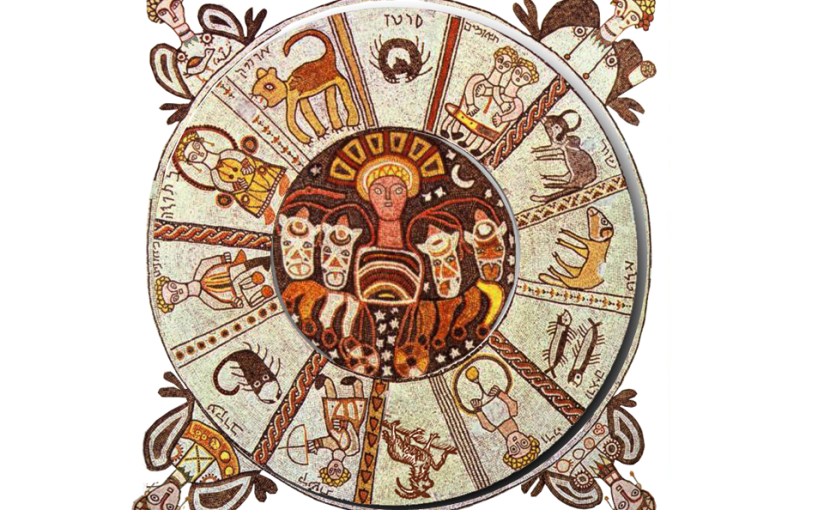This is another article in a series on Belief Systems, or Systematic Theologies. It is part of a larger series on How to Study the Bible. As we study the Bible, it is important to understand it according to is plainest, most literal sense. As Chuck Missler says, we need to take the Bible seriously. A serious Bible student should seek to understand what the Bible is saying, according to how the author intended it, and according to the meaning of the words used at the time the text was originally written. If we impose a man-created belief system upon the Biblical text, we run the risk of misunderstanding what it says, and therefore misunderstanding who God is and what He requires us to do.
Origin of Calvinism
John Calvin (1509-1564) was a church leader at the time of the Protestant Reformation. He was influenced by the work of Martin Luther. His writings were very influential in the establishment of protestant churches as they broke free from the control of the Catholic Church. As such, Calvinism is also called Reformed Theology.
Calvinists claim that their teaching is in agreement with the teachings of the Catholic bishop, Augustine of Hippo (354-430 A.D.). Calvin’s Institutes of the Christian Religion quotes frequently from the writings of Augustine.
(Sources: here, here, and here)
Calvin and others of his generation made many disciples. These disciples went on to start churches and to spread his doctrine far and wide. Its influence was very strong through the 19th Century.
Some of the great Calvinist writers are John Owen, Jonathan Edwards, and C.H. Spurgeon. These are some of the greatest Bible scholars to live in the New Testament era. Their work is thorough, well researched, and replete with scripture references. They should be read by all Christians who have access to their work. In the past century, their work has been continued by such preachers as R.C. Sproul, A.W. Pink, and John Piper. I have learned more about the Bible from these authors than from any other teachers or preachers.
What Calvinism Teaches
As mentioned in a previous post, Calvinists believe in Covenant Theology. That belief system has one dominant thought: the Covenant of Grace. So Calvinist teaching is sometimes called the Doctrines of Grace. Calvinist teaching emphasizes the sovereignty of God over the free will of man, and that all men are predestined to either salvation or damnation from before the creation of the world.
To explain Calvinism briefly, the acronym TULIP is used:
Total Depravity – This is the idea that man is unable to do anything good without the illuminating power of God (Jeremiah 17:9).
Unconditional Election – This is the idea that God elects some people to salvation without regard to a person’s character, works, whether they be in the past or yet future (Romans 9:11).
Limited Atonement – This is the idea that Jesus Christ died for the elect, and not for all mankind. Logically this has to be true because Calvinists believe that God gets whatever he wills and that he is efficient in all his works, meaning that he would not do a work to save a person unless that person would actually be saved (Isaiah 46:10-11).
Irresistible Grace – This is the teaching that when God chooses to work in a man’s heart to draw him to Himself, it is impossible for that drawing power to be resisted by man. It is certain that everyone whom God calls to be saved will be saved (Acts 9:3-6, 15).
Perseverance of the Saints – This is the teaching that those whom God has saved (“the elect”) will continue to hold to their faith in God unto death. They may fall into sin, but they will repent before they die (John 10:28-29).
(For more details on TULIP, look here.)
Hypercalvinism
Some Calvinists believe in the doctrine of double predestination. This belief, known as Hypercalvinism, teaches that not only are the elect predestined (Romans 8:29), but that the damned are also predestined to Hell. There is no verse in the Bible that supports the teaching that those who reject the offer of salvation through Jesus Christ are foreordained to damnation. Those who perish in Hell do so by their own choosing. To teach otherwise would lead one to think that God is not good.
Sovereignty vs. Free Will
Calvinism’s view on man’s free will is a way to understand God given man’s limited cognitive ability, and our limited understanding of God. As such, it ‘puts God in a box’. While it seems reasonable to conclude that a God who has predestined everyone could not have created these predestined people to have free will, we must rely on what the Bible says:
For my thoughts are not your thoughts, neither are your ways my ways, saith the Lord.
For as the heavens are higher than the earth, so are my ways higher than your ways, and my thoughts than your thoughts.
– Isaiah 55:8-9
When we try to understand exactly how God saves people, and what God is thinking when He chooses to save or not save a person, we are wading into waters too deep for us to stand in. We are not able to understand the details of why God does what he does. The Bible gives us abundant information about His thoughts and His desires. It is simple to understand that God has provided a way for man to be saved: God Himself became a man, and died as our representative, or as our substitute. But God has not explained everything to us about his plan of salvation.
The secret things belong unto the Lord our God: but those things which are revealed belong unto us and to our children for ever, that we may do all the words of this law.
– Deuteronomy 29:29
God reveals enough of Himself to us that we have abundant reasons to love Him and obey Him. But we “can’t handle the truth” regarding the interaction between our will and God’s sovereignty. Our minds are too simple and too small to comprehend it. God is so big and so powerful that He is able to sovereignly control who is saved without interfering with our ability to choose to follow Him. God is able to see all of time at once (Isaiah 46:10). He is able to arrange future events just as easily as we are able to type letters on a computer screen.
What are some specific Bible verses that Calvinists have generally misinterpreted?
As it is written, Jacob have I loved, but Esau have I hated.
What shall we say then? Is there unrighteousness with God? God forbid.
For he saith to Moses, I will have mercy on whom I will have mercy, and I will have compassion on whom I will have compassion.
– Romans 9:13-15
Romans Chapters 9-11 are a parenthetical section that Paul inserts to explain God’s love for the nation of Israel. Though God has established the Church, he is not finished dealing with Israel. There are many promises that God has given to Israel that have not yet been fulfilled. Calvinists tend to understand Romans 9 with respect to salvation of individuals. This can lead one to believe that man doesn’t really have free will, since God seemingly saves whomever He wishes without regard to the merits of any person, according to v. 15. But when one understands that by “Jacob” God is referring to the nation of Israel, and that by “Esau” God is referring to the nations of Moab and Edom (and by inference to all Gentile nations), we no longer see God as being capricious and unpredictable regarding man’s salvation. Whether or not a nation is saved has no bearing on my salvation as a person. I am a citizen of the United States of America, but my eternal destiny is not dependent upon God saving the nation. He has already saved me; that is the only guarantee I need. America may cease to be a sovereign nation, but my relationship to God is secure.
But, beloved, be not ignorant of this one thing, that one day is with the Lord as a thousand years, and a thousand years as one day.
The Lord is not slack concerning his promise, as some men count slackness; but is longsuffering to us-ward, not willing that any should perish, but that all should come to repentance.
– 2 Peter 3:8-9
Who will have all men to be saved, and to come unto the knowledge of the truth.
– 1 Timothy 2.4
In the above verses, Calvinists have to redefine the meaning of the word “all” in order for the verses to fit within their limited atonement belief system.
Theological errors that can result from adhering to Calvinism
Its views on Israel:
For I would not, brethren, that ye should be ignorant of this mystery, lest ye should be wise in your own conceits; that blindness in part is happened to Israel, until the fulness of the Gentiles be come in.
And so all Israel shall be saved:
Rom. 11:25-26
Modern Calvinists typically believe that God finished his dealings with Israel as a nation in A.D. 70 when Jerusalem was destroyed by the Romans. They believe in Replacement Theology; that is, the Church has inherited the promises made to Israel that were not fulfilled by God. But the Book of Hebrews teaches that Israel and the Church are two separate groups of people, they have separate origins, separate covenants (Hebrews 7:22, see also Galatians 4:22-31), separate promises (Hebrews 8:6), and separate destinies (Hebrews 12:18, 22-23). God’s reasons for creating each group are also distinct.
Therefore they do not understand the importance of supporting the modern reconstituted nation of Israel, which was formally brought back into existence by the United Nations in 1947. This nation consists of the chosen people of God according to the Old Testament. God promised Abraham and David that they would possess the Promised Land forever. The events that we have seen take place over the past 120 years are signs that God intends to keep His promises to Israel (and not to transfer their inheritance the Church). This theological point is important. If we do not support Israel, and pray for the peace of Jerusalem (Psalm 122:6), we are inviting God’s judgment upon ourselves.
Its Eschatology
Because of its views on Israel, Calvinism tends to have allegorical interpretations of those prophetic portions of Scripture that have not yet found their fulfillment. They tend to be post-tribulational in their beliefs, because they do not understand that the Tribulation represents a restarting of God’s relationship with Israel. As such, the Church cannot be on the earth during the Tribulation. Those who believe that the church has taken the place of Israel must necessarily believe that the Church will endure the Tribulation, if they want to believe the Bible.
Calvinists also tend to be amillennial in their eschatology, due to Replacement Theology. Augustine held to an allegorical view of the millennium, writing that the church would fulfill it instead of Israel. This view has been popular with Calvinists.
In Summary
Calvinism has a rich history within the Church, and the church owes its theologians a debt of gratitude for much excellent Bible teaching. But with the re-emergence of Israel on the world scene starting in the 20th Century, its Systematic Theology has failed to provide answers. Allegorizing scripture will always result in error (excepting Paul -see Galatians 4:24). It is vitally important to construct a Systematic Theology that agrees with a serious, literal understanding of the entire Bible in its various historical contexts.








